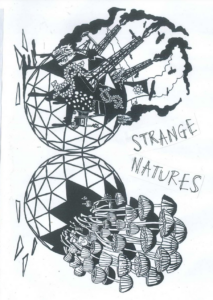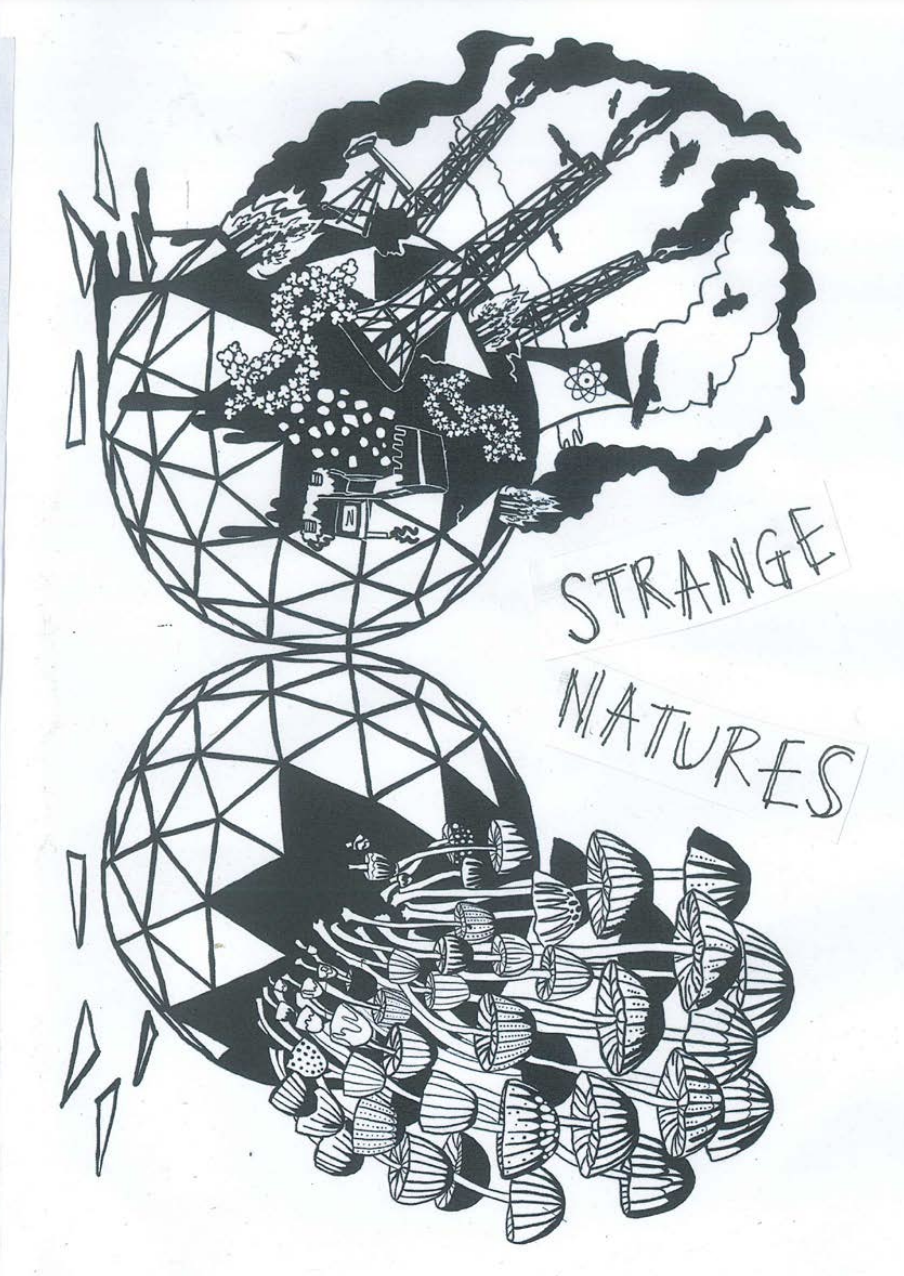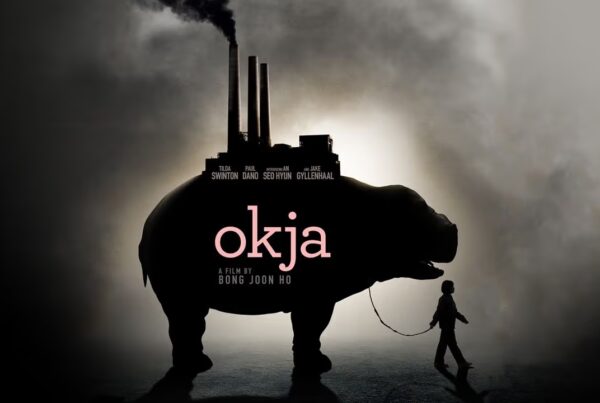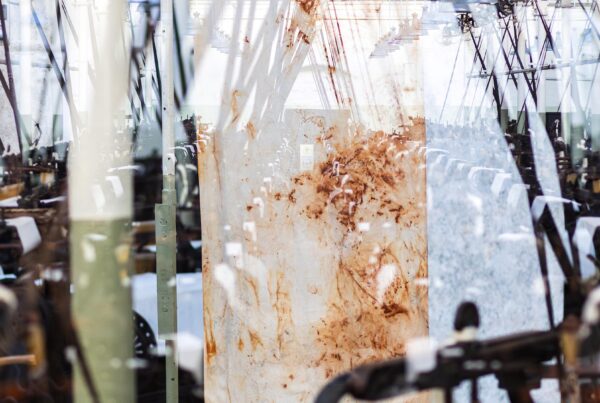By Future Natures
‘Strange Natures’ is a zine that brings together art, stories and essays by multiple authors, from different places, times and vantage points, different ways of noticing, seeing, listening and inhabiting reality.
Drawing from a series of contributions that responded to a call issued by the Centre for Future Natures in 2023, ‘Strange Natures’ is a zine that brings together art, stories and essays by multiple authors, from different places, times and vantage points, different ways of noticing, seeing, listening and inhabiting reality.

A fascination with the strange is a fascination for that which lies beneath the surface, beyond ordinary ways of seeing, sensing and perceiving. Embracing the strange can create portals to other worlds. These can open up new ways of seeing that can help us historicize, recast and subvert binary ways of thinking, dominant framings and anthropocene politics of ecology, crisis and control. They can help us to make sense of alienating and unsettling effects that globalisation has had on bodies and embodied experience.
The zine shows many ways of understanding and experiencing ‘strange natures’, from nomadic river islands and the call-and-response of bullfrogs in India, to the haunted floodplains of Texas; from strange patterns in bird flights off the Scottish coast, to stories and poems that challenge the boundaries of selves and bodies.

‘Strange Natures’ invites us to abolish the rational, to find re-enchantment, to embrace the weirdness of the world as we know it, and accept the inevitability of transformation in a changing, vastly-more-than-human universe of possibilities.
The zine is published by the Centre for Future Natures under a Creative Commons licence. It is available to download for free in online and self-printable versions. Visit the web page to find out more.
https://futurenatures.org/zine-strange-natures/

—-
The Future Natures initiative is hosted at the Institute of Development Studies, UK.
Future Natures builds on lessons, insights and infrastructure developed over fifteen years of interdisciplinary research, methods development and international partnership associated with the ESRC STEPS Centre (2006-2021) based at the Institute of Development Studies (IDS) and the Science Policy Research Unit (SPRU), University of Sussex.





